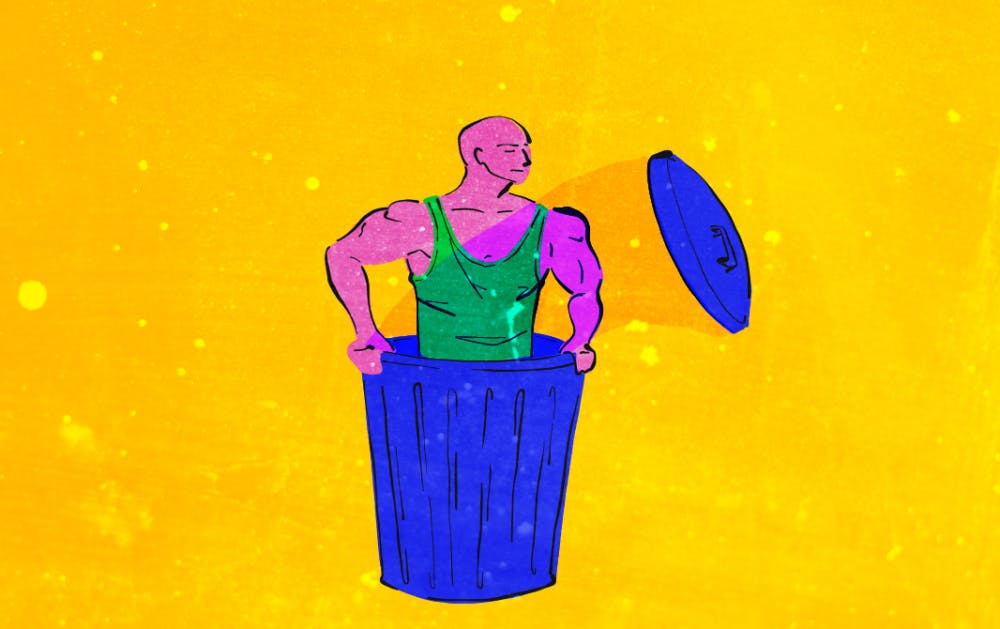Men are trash.
It's a saying I've subscribed to for several years, and for much of my life, it's a phrase that's empowered me.
Given the experiences I've had with men, whether it's the ever-degrading catcall while walking the street or daily mansplaining over even the most basic of tasks, I've felt that statement can be justified.
When I would say it to men, they immediately became defensive. They'd say phrases like "But that's not me" and "I love women."
I repeated it because I felt that was the most effective way to make change. But I was wrong.
Now, I see that this didn't work to make men evaluate their actions but only put those men on the defensive.
The actions of men are in the public eye now more than ever, and social media has responded with major backlash. But this begs the question of whether or not this is the proper response.
Men and women are not perfect. The actions of specific men and women have been unjust and unfair. Yet, there is still underlying frustration with men and, often, it is directed toward the gender as a whole.
On social media, posts and hashtags have trended with the sayings #menaretrash and #menarescum, among other negative messages. But this outlook on men isn't the most effective way to create a change, both in the attitude and actions of men.
Instead, there should be a more open discussion on men's actions and what men and women, together, should work toward.
Gloria Feldt, an ASU professor of women and gender studies and co-founder and president of Take The Lead, mentioned that her thinking is based on inclusion and conversation.
“My general philosophy is that what you always want to do is to bring people into the circle, not push them out of the circle,” Feldt said. “Problems don't get solved unless you actually can have dialogue and can include all parties in that.”
This message of inclusion is practiced by many platforms. Recently, Facebook has taken down 'men are trash' posts or those with similar messages because they do not coincide with their standards.
According to Facebook’s community standards on hate speech, “We do not allow hate speech on Facebook because it creates an environment of intimidation and exclusion and in some cases may promote real-world violence. We define hate speech as a direct attack on people based on what we call protected characteristics — race, ethnicity, national origin, religious affiliation, sexual orientation, caste, sex, gender, gender identity, and serious disease or disability.”
Although many of the recent scandals have been surrounding men in politics and even college men, there are better ways to disagree with their actions and look for ways to create lasting change without saying the ubiquitous phrase. This cannot be done with aggressive social media posts and hate speech on and around campus or in the media.
People can instead work to change these standards that we have for men.
If the goal of feminism is to create equality among the genders and within our society, then attacking men cannot be the most effective way to become recognized as equals.
And by not saying men are trash, it isn't discounting their actions or overlooking their missteps.
"I'm in no way saying that any behavior, bad behavior, on the part of men should be excused. Absolutely not," Feldt said. "Maybe since that phrase is out there, it’s a good reason for men to step up and say ‘Hey, wait a minute. They’re the other guys. Let’s change our behavior so that we aren’t being spoken of that way.’"
Alienating an entire gender is not how society should hold men accountable. Keeping people accountable of their actions is important, but creating a forum for discussion that is inclusive and welcoming can lead to real change.
And this should not be done through a screen. Social media cannot be the main forum for discussion. Using Facebook or Twitter to discuss these topics is how 'men are trash' became such a popular saying in the first place.
“I think the idea here is to not put blame on anybody but to keep focused on 'what’s the problem and let’s try to solve it,'” Feldt said. “Let’s try to change it.”
Men are trash. But let's talk more about the why.
Reach the columnist at mfoxall@asu.edu and follow @mayafoxall on Twitter.
Editor’s note: The opinions presented in this column are the authors’ and do not imply any endorsement from The State Press or its editors.
Want to join the conversation? Send an email to opiniondesk.statepress@gmail.com. Keep letters under 500 words and be sure to include your university affiliation. Anonymity will not be granted.
Like The State Press on Facebook and follow @statepress on Twitter.




